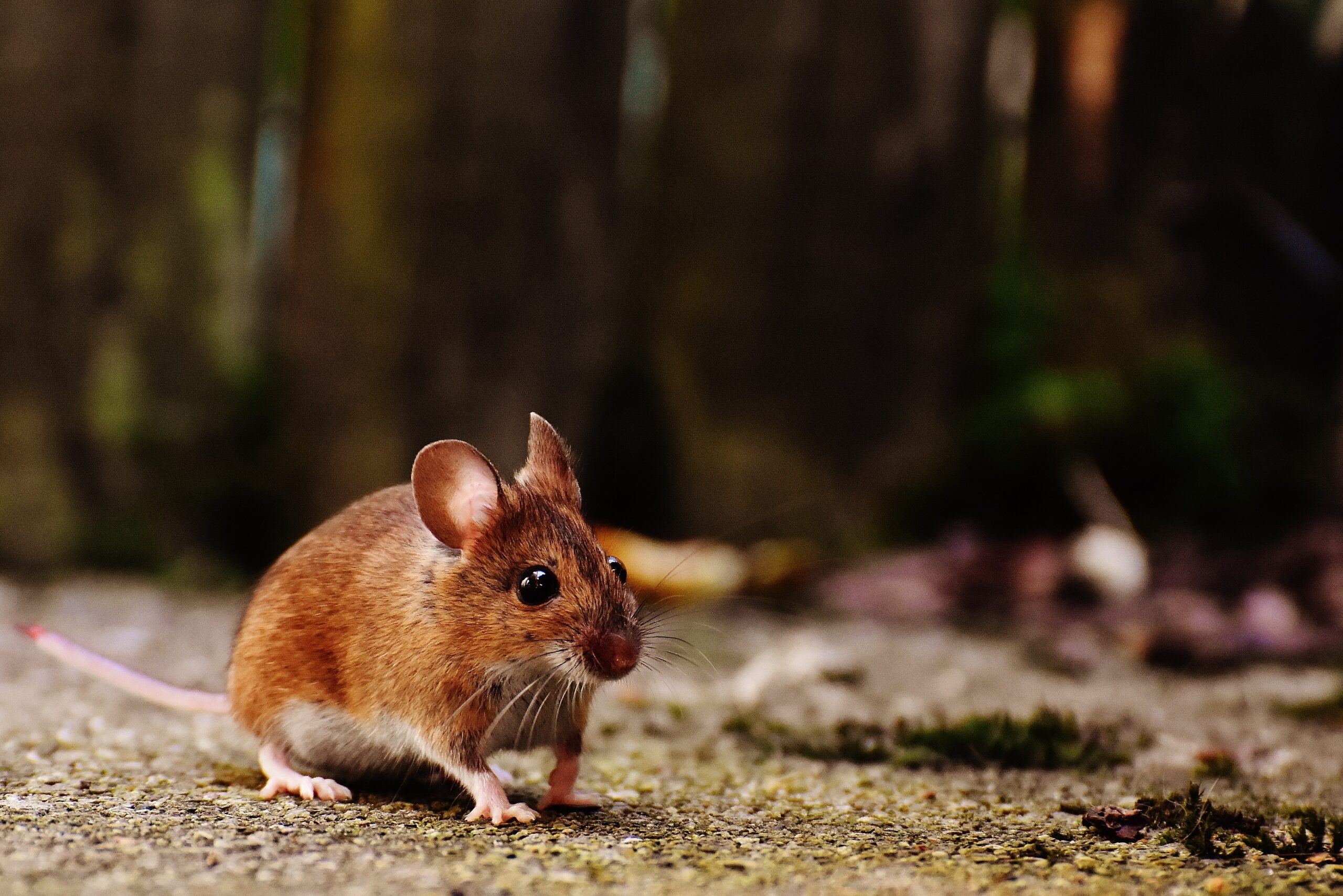


Mice are small, reproduce quickly, and carry many serious diseases such as hantavirus. If you see mouse droppings, smell the musty odor of mouse urine, or hear scratching in the walls, you may have a mouse infestation.
Call Rudy’s Termite & Pest Control for fast and effective mouse control in the Coachella Valley.
The most common types of mice in the Coachella Valley are the house mouse and the deer mouse. Both species have large ears and a very long tail and are typically about 3-4 inches in length. Mice do have fur on their tail as well, but it’s short and fine. They’re both grey or brown in color, but house mice have lighter-colored undersides and pinkish-colored feet, while deer mice have white bellies, feet, and tail bottoms.
Mouse droppings are approximately the size of a grain of rice, and black in color. These droppings are a serious health risk.
Both species of mice like habitats where they can feel well-protected, such as dense vegetation, underbrush, farmland, sheds, attics, and basements. Because mice eat the same things we do, they like to live near people and the food sources we provide.
Mice are good climbers, so they can easily enter your home or business through small cracks in walls and around windows. They can nest in your attic or crawlspace, and even in large electrical appliances. They’re drawn to sources of food, water, and shelter.
Mice can have eight litters a year, with each litter having about six pups. The life span of a mouse is approximately 1-3 years if it lives indoors. The gestational period for mice is three weeks, and its pups are born blind and hairless. In their first two weeks of life, mice grow their fur and develop their sight and ability to walk. Mice are fully weaned after three weeks, and males will begin searching for their own food, with females taking a little bit longer. Six weeks after they’re born, mice are fully-grown adults and can begin to find their own mates.
A female mouse can mate again as soon as she’s given birth, which means that mice populations can spread very quickly if left untreated.
Rudy’s Termite & Pest Control are licensed Coachella Valley mouse control experts. Contact us today and let us solve the issue effectively.
Mice in the Coachella Valley pose a health risk to residents through the diseases they carry. Mice not only host parasites, fleas, ticks, and other pests. They also carry diseases like hantavirus, salmonellosis, and leptospirosis. Because they eat the same food we do, they like to live near us. Close proximity to mice and their urine, excrement, and pathogens is a serious health risk.
Because mice need to chew in order to control the length of their constantly-growing teeth, they can do serious damage to your home and business Mice will eat almost anything, from fruit and vegetables to seeds to insects. They can also chew through paper, drywall, insulation, wood, electrical wires, and other household materials.
More importantly, mice can spread serious disease such as hantavirus, salmonella, and leptospirosis. Because mice breed quickly, it’s important to deal with the issue immediately.
A mouse infestation is a serious issue, but DIY mousetraps don’t fix the problem long-term. It’s important to rely on experts who can deal with a mouse infestation for good. At Rudy’s Termite & Pest Control, we can quickly and effectively treat mice infestations in your Coachella Valley home or business.